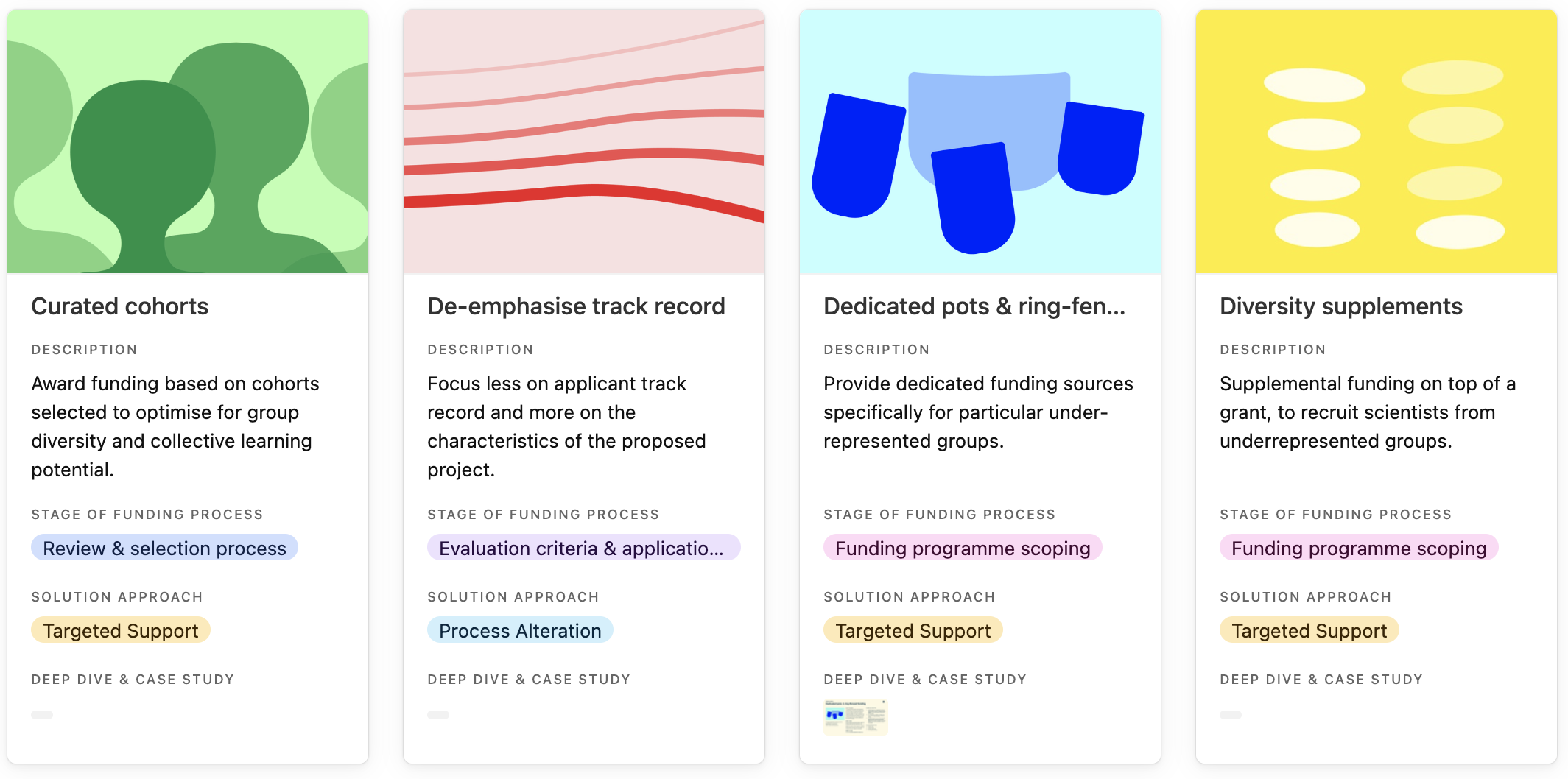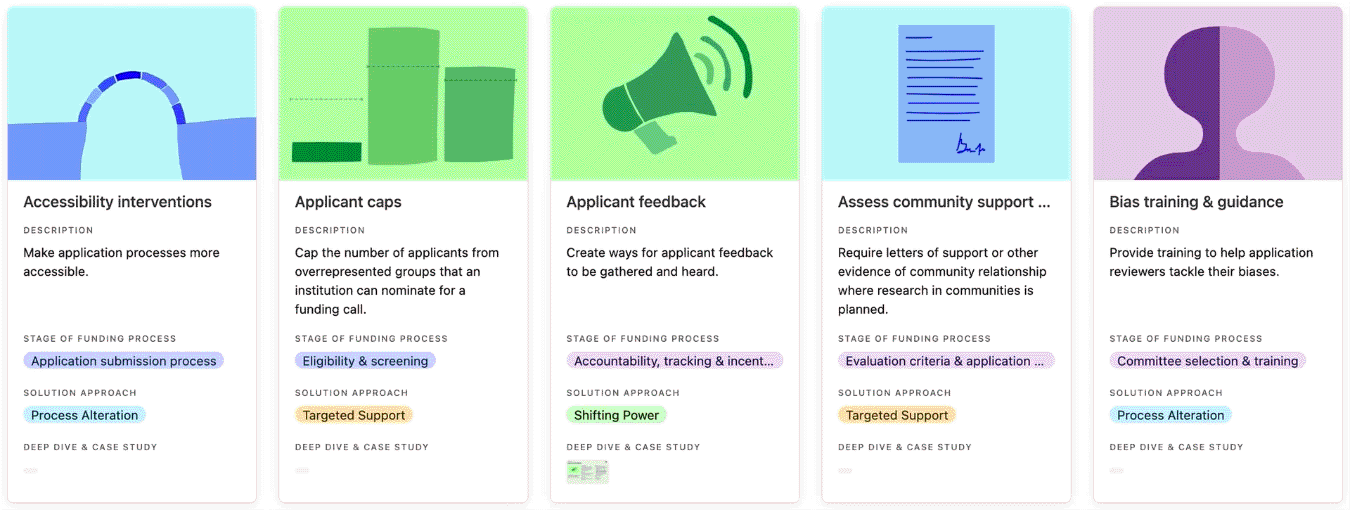Funding practices do not always lead to the equitable outcomes we hope for. To help address this, we supported Wellcome’s Culture, Equity, Diversity and Inclusion (CEDI) team to identify innovative practices that other organisations have used to address inequities in funding outcomes. This post introduces the Equitable Funding Practice Library we developed and shares how funders can use and build on this resource.
Through this project, we set out to put grant makers at Wellcome one step ahead on their journey toward achieving more equitable funding outcomes by identifying existing practices that they could build on, adapt, and refer to when designing their own context-specific interventions.
To do this, we explored the practices of many different funders working with many different sectors, populations, communities, geographies, and scales of implementation. We also looked beyond funding into other domains to see what was being done to improve equity, diversity, and inclusion (EDI) outcomes within recruitment, university admissions and prize mechanisms.
We found more than 100 distinct methods, models, approaches, and ways of working funders have used to address funding inequities. Ultimately, we built a collection featuring 50 of these practices in greater detail. We’re excited to share this resource today.
What’s in the practice library?
The Equitable Funding Practice Library brings together repeatable ideas that can be mixed and matched or applied individually to solve common challenges in reducing and eliminating inequitable funding outcomes. Whether you’re a funder, grantee, applicant, advocate, or anyone else working to make funding outcomes more equitable, we hope you’ll find this collection of practices a useful reference and source of inspiration.
Explore the Equitable Funding Practice Library
For each featured practice, the library provides a short description of what the practice does. Users can click through for further details including why the practice is needed and examples of the practice in implementation. For a subset of 10 practices, we’ve also attached a more detailed profile and case study, highlighting implementation tips and insights as well as evidence of success where available.

Entries in the practice library, curated cohorts, de-emphasise track record, dedicated pots & ring-fenced funding and diversity supplements.
How to use this resource
1. Browse the practices for inspiration
Browse the practice library to get ideas for how to address EDI challenges that persist in funding systems, programmes, and processes. Click on each practice to read the ‘why its needed’ field to understand the types of challenges a practice has addressed, and whether it could help you address similar challenges.

You can search, filter, and sort the practice library.
2. Identify practices at relevant stages of the funding process
Determine where in the funding process your own EDI challenges arise, then view the practice library by stage of the funding process to identify which practices could be relevant to your situation. Keep in mind that some practices may have relevance across multiple stages, even if the practice library only lists one stage.

The funding process, from establishing the funding opportunity, through designing the decision-making process, to implementing the application process.
3. Discover practices by solution approach
You can also explore practices that match the solution approach most relevant to the scale of change you are aiming to achieve, and whether you would prefer a targeted or neutral strategy. Use the following questions to understand which solution approach best matches your interests. Then, view the library’s practices in that category.
- Are you interested in giving certain groups of applicants dedicated sources of support to help them through a process? Explore practices in targeted support.
- Are you passionate about changing the traditional funder-grantee power dynamic and shifting the power into the hands of communities who are most marginalised? Explore practices in shifting power.
- Are you interested in identifying the causes of disparities and addressing these proactively to make sure all applicants have an equal chance of succeeding? Explore practices in process alteration.
- Do you want to avoid complex EDI interventions and wipe the slate clean, introducing new models of funding which even the playing field from the start? Explore practices in radical simplification.
In the solution approach matrix, the four solution approaches are: targeted support, shifting power, process alteration, and radical simplification.
4. Build your own interventions
The practices we’ve gathered are starting points to build on. We invite you to adapt what you discover in the library to ultimately create your own interventions fit for your particular context. If practices in this resource have helped you reduce inequities in funding outcomes, please get in touch to share your experience with us.
To suggest practices to add to the Equitable Funding Practice Library, share your experience using this resource, or learn more about this project, contact Gearóid Maguire or the Science Practice team.

